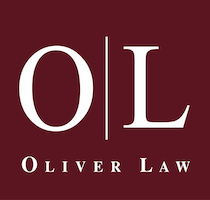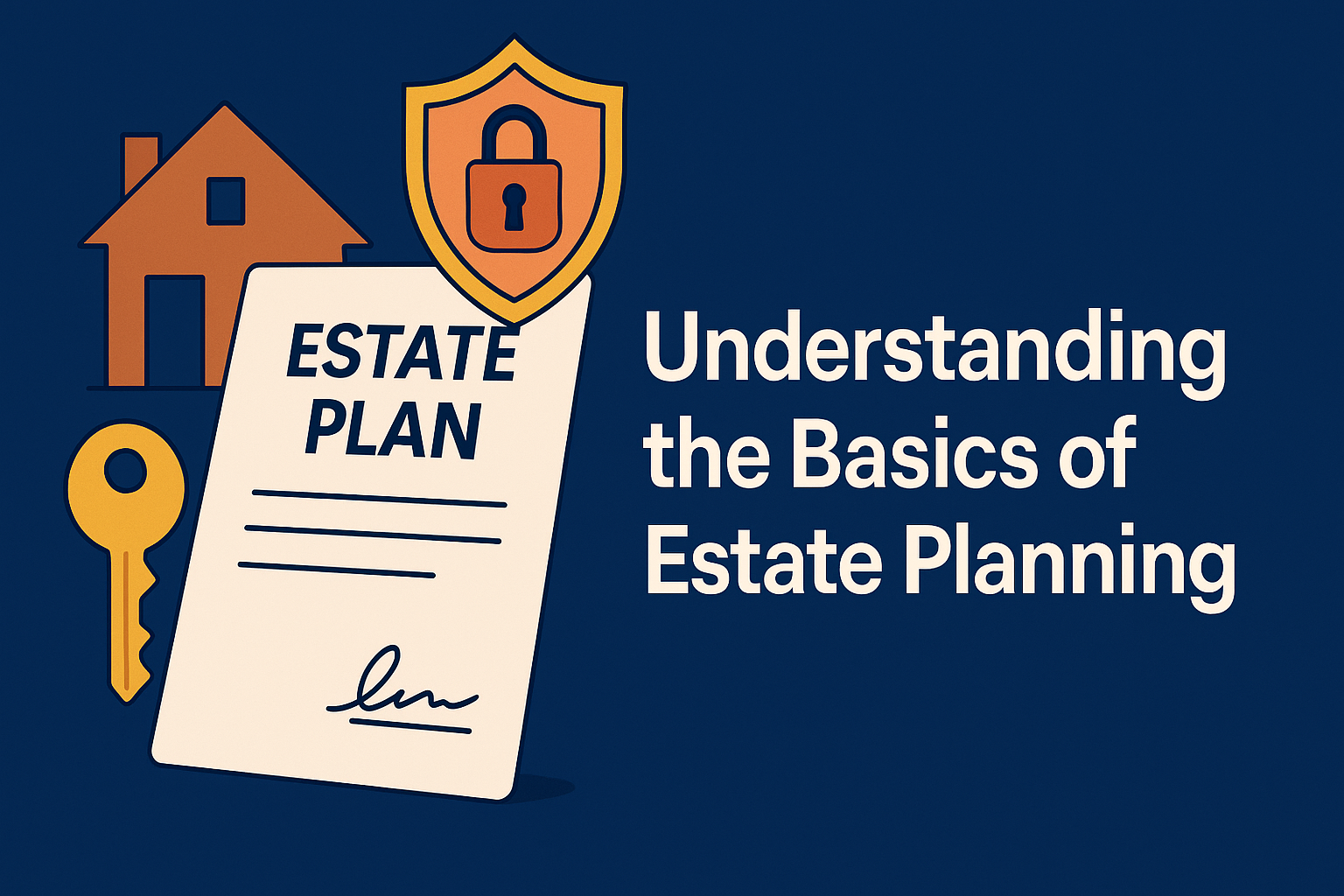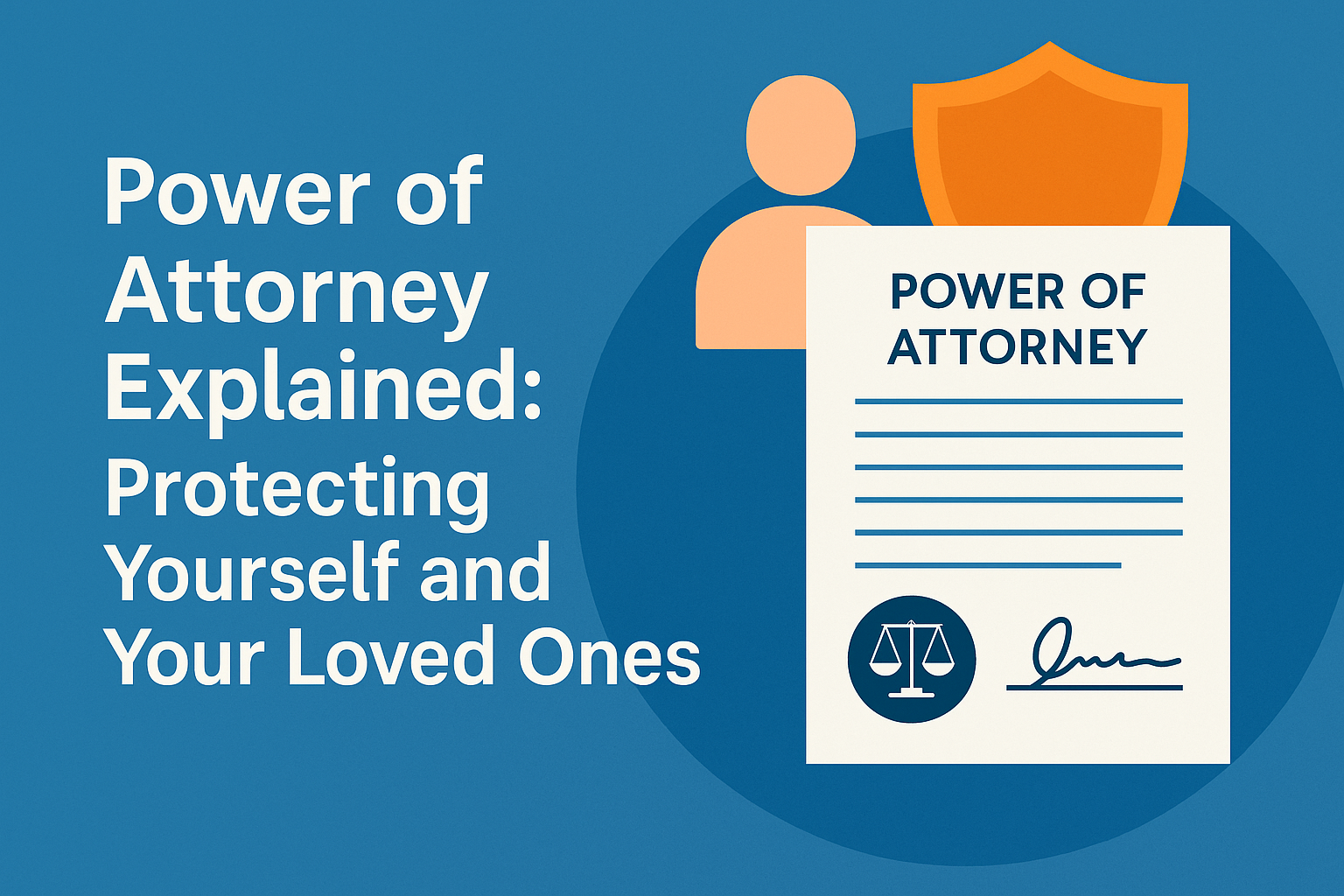Let’s talk about something most people avoid thinking about until they absolutely have to: what happens to your stuff when you’re gone. Estate planning sounds like something only wealthy people with mansions and trust funds need to worry about, but that’s not true at all.
If you own anything – a house, a car, a bank account, even just some furniture and personal belongings – you need some kind of estate plan. Without one, you’re basically leaving your family to figure out a legal mess while they’re grieving. That’s not exactly the legacy most people want to leave behind.
The good news? Basic estate planning isn’t nearly as complicated or expensive as people think. You don’t need a team of lawyers or complex financial instruments. You just need to understand a few key concepts and make some decisions about what you want to happen.
Wills: The Foundation Everyone Needs
A will is probably the first thing that comes to mind when people think about estate planning, and for good reason. It’s the basic document that says who gets what when you die. Sounds simple enough, right?
But here’s what’s interesting – a surprising number of people don’t have wills. They think it’s too expensive, too complicated, or they just keep putting it off because nobody likes thinking about their own mortality. Meanwhile, dying without a will means state law decides who gets your assets, and state law might not match what you would have wanted.
Without a will, your stuff gets distributed according to intestacy laws, which vary by state but generally prioritize spouses and children. That might sound reasonable, but it can create problems. Maybe you wanted your brother to get your tools, or you had specific wishes about family heirlooms. Without a will, those preferences don’t matter.
A basic will doesn’t have to be complicated. It names an executor (the person who handles settling your estate), lists your major assets, and says who should get what. You can also use it to name guardians for minor children, which is honestly one of the most important reasons young parents need wills.
The whole “handwritten will” thing you see in movies is actually legal in some states, but it’s risky. Printed wills that are properly signed and witnessed are much more likely to hold up in court.
Trusts: Not Just for the Ultra-Wealthy
Trusts have this reputation for being complex financial instruments for rich people trying to avoid taxes. While they can definitely be used for sophisticated tax planning, basic trusts are actually pretty straightforward and useful for regular folks.
A revocable living trust is probably the most common type for average families. You create the trust, transfer your assets into it, and act as the trustee while you’re alive. When you die, a successor trustee takes over and distributes assets according to your instructions.
The main advantage? Assets in a trust typically avoid probate, which is the court process for settling estates. Probate can take months or even years, and it’s public record. Your family’s financial details become available for anyone to look up. Trusts keep things private and usually much faster.
Trusts also give you more control over how and when beneficiaries receive assets. Maybe you want your kids to inherit money, but only after they turn 25, or only for education expenses. A will can’t do that – once probate is done, beneficiaries get their inheritance outright. A trust can have conditions and restrictions.
That said, trusts do require more ongoing maintenance than wills. You need to actually transfer assets into the trust for it to work, and you might need to update beneficiary designations on accounts and insurance policies.
Powers of Attorney: Planning for Incapacity
Here’s something most people don’t consider: what happens if you’re not dead, but you can’t make decisions for yourself? A stroke, dementia, or serious accident could leave you unable to manage your finances or make healthcare decisions.
That’s where powers of attorney come in. A financial power of attorney lets someone else handle your money and legal affairs if you can’t. A healthcare power of attorney (sometimes called a healthcare proxy) lets someone make medical decisions for you.
These documents are crucial, but they’re often overlooked. Without them, your family might need to go to court to get legal authority to help you, which takes time and money when you might need immediate assistance.
The key is choosing the right people for these roles. Your financial power of attorney should be someone who’s responsible with money and understands your values. Your healthcare proxy should know your wishes about medical treatment and be willing to advocate for them, even in difficult situations.
Beneficiary Designations: The Overlooked Essentials
Here’s something that trips up a lot of people: beneficiary designations on retirement accounts, life insurance policies, and bank accounts actually override whatever your will says. That’s right – your will might say everything goes to your spouse, but if your 401(k) still lists your ex-spouse as the beneficiary, guess who gets that money?
This is why reviewing and updating beneficiary designations is so important, especially after major life events like marriage, divorce, or having children. It’s also why estate planning isn’t a “set it and forget it” process – these things need periodic updates.
Some accounts allow you to name contingent beneficiaries too, which is smart planning. If your primary beneficiary dies before you do, the contingent beneficiary automatically becomes the primary. Without contingent beneficiaries, those assets might end up in probate even if you thought you had everything covered.
Advanced Directives: Your Healthcare Wishes
Nobody wants to think about end-of-life medical situations, but having advance directives can spare your family from making impossible decisions during already difficult times. These documents spell out your preferences for medical treatment if you can’t communicate them yourself.
A living will covers things like life support, feeding tubes, and resuscitation. Do you want extraordinary measures taken to keep you alive, or would you prefer comfort care? These are deeply personal decisions, but they’re much easier to make when you’re healthy and thinking clearly.
The healthcare power of attorney we mentioned earlier works alongside advance directives. The living will covers specific situations you can anticipate, while the healthcare proxy can make decisions about situations you couldn’t predict.
Some people worry that advance directives are too restrictive or that medical technology might change. Most allow for some flexibility and can be updated as your views evolve or medical options improve.
When to Get Professional Help
You can find will templates online and some people successfully create basic estate plans on their own, but there are situations where professional help is worth the cost. If you have significant assets, own a business, have complicated family situations, or live in multiple states, an attorney who specializes in estate planning can save you from expensive mistakes.
Even for straightforward situations, a consultation with an estate planning attorney might be worth it just for peace of mind. They can help you understand your state’s specific laws and make sure you’re not overlooking anything important.
The Emotional Side: More Than Just Legal Documents
Estate planning isn’t just about legal documents and tax strategies – it’s about taking care of the people you love. Yes, thinking about death and incapacity is uncomfortable, but avoiding these conversations often makes things harder for your family when they’re already dealing with loss or crisis.
Consider having open discussions with family members about your wishes and values. This doesn’t mean you need to share every detail of your financial situation, but letting people know your general thinking can prevent confusion and conflict later.
Getting Started: Small Steps Count
If the whole process feels overwhelming, start small. Get a basic will. Update your beneficiary designations. Have a conversation with family members about your values and preferences.
Estate planning isn’t a one-time event – it’s an ongoing process that evolves with your life circumstances. The important thing is to start somewhere, because having an imperfect plan is infinitely better than having no plan at all.
Your family will thank you for taking the time to think through these issues now, when you can make thoughtful decisions instead of leaving them to figure everything out during an already difficult time.


